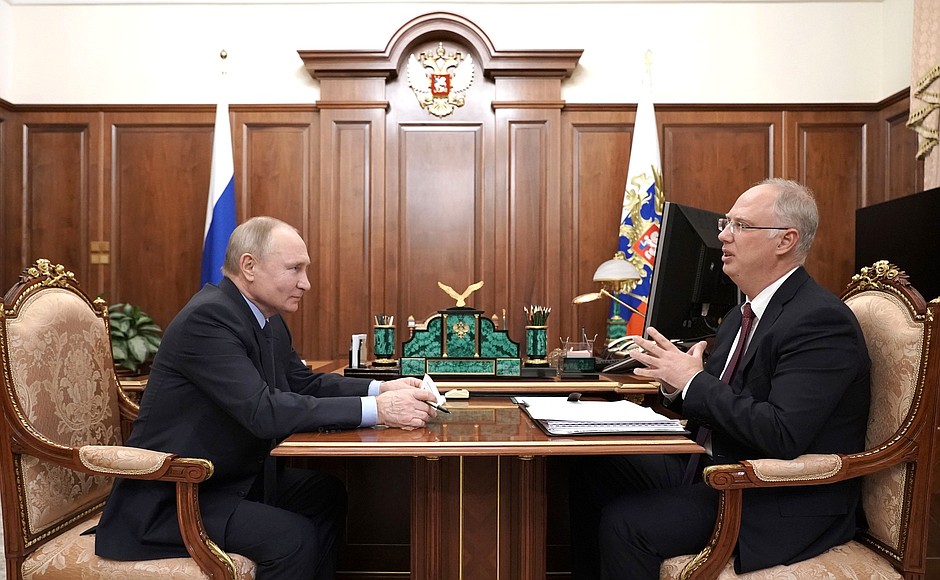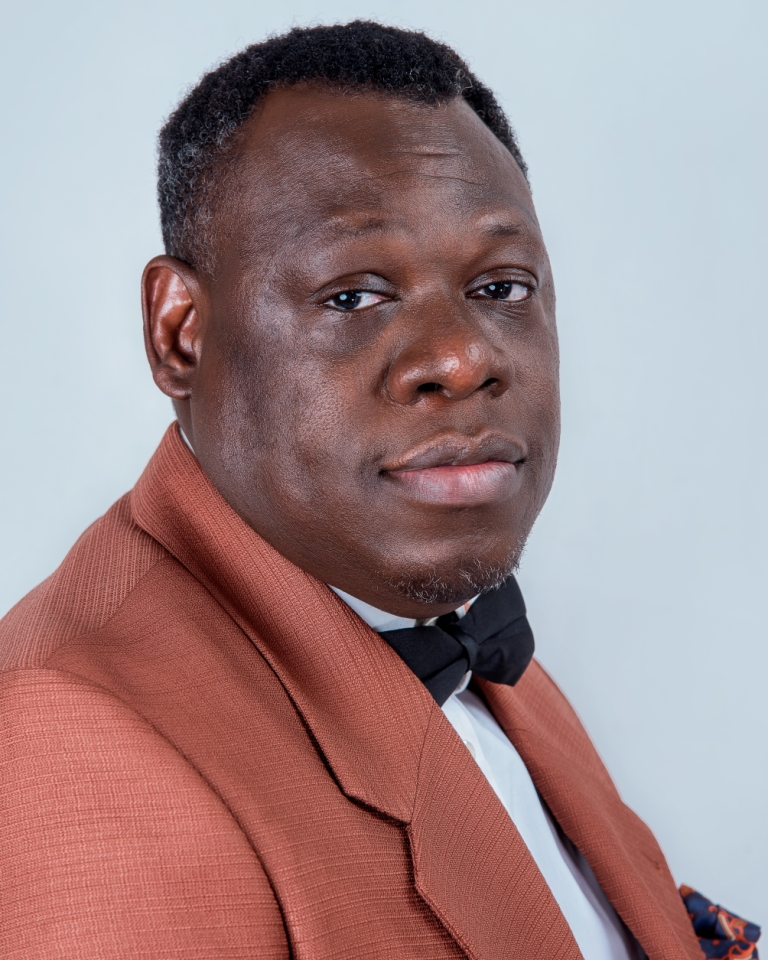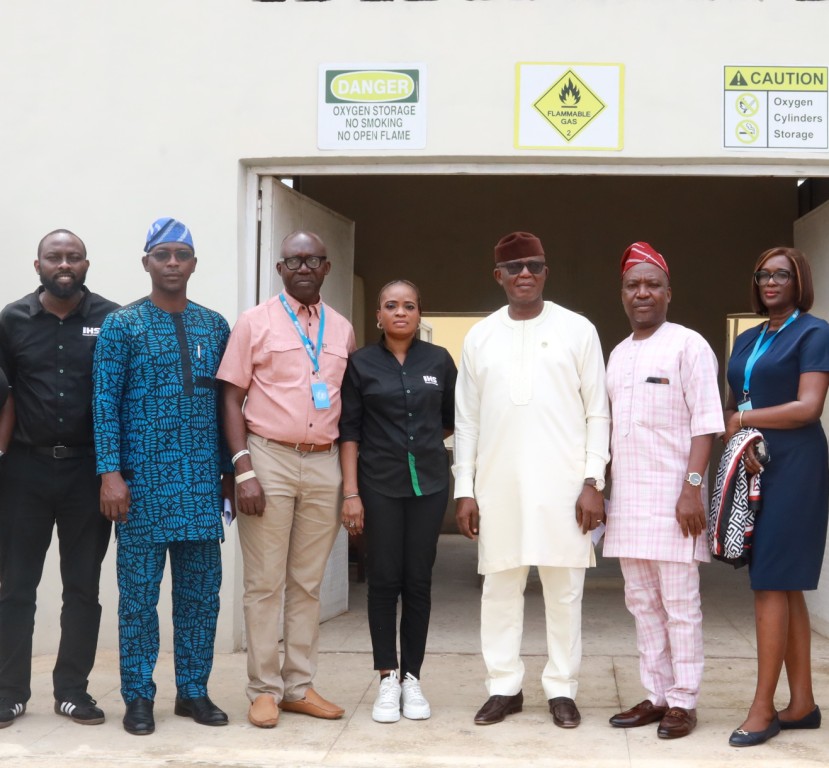Health
Why Russia’s Vaccine Diplomacy Failed Africa

By Kester Kenn Klomegah
In these difficult and crucial times, the strategic partnership with Africa has become a priority of Russia’s foreign policy, declared Sergey Lavrov, Russia’s Foreign Affairs Minister.
The difficult times understandably refer to both the COVID-19 pandemic and the current period when Russia’s own “special military operation” in Ukraine has shattered the global economy.
But why is Russia very quiet over its vaccine diplomacy in Africa? What have Russia-African Union relations brought to the health sector in Africa? Why Russia’s vaccine diplomacy could arguably be described as a failure for vulnerable groups and vaccinable people among the 1.3 billion population.
The Africa Centre for Disease Control and Prevention (Africa CDC) estimated approximately 28 per cent of the entire African population was vaccinated over the past two years. South African President Cyril Ramaphosa and a few African leaders have vehemently accused European and Western countries with advanced pharmaceutical technologies of hoarding COVID-19 vaccines.
Russia was the first advanced country that came out with Sputnik V in August 2020, in fact, less than a year when coronavirus was declared an epidemic by the World Health Organization (WHO). But Sputnik V has never been approved by the WHO primarily because of a lack of transparency of Russian laboratories in addition to the fact that it was approved before going into compulsory phase III clinical trials, breached relevant international protocols and ruined its reputation from the outset, and further in Russia as demonstrated by a high degree of vaccine hesitancy.
The Sputnik V was developed by the Gamaleya Scientific Research Institute of Epidemiology and Microbiology. It was later registered under the emergency use authorization procedure, according to the Russian Direct Investment Fund (RDIF) website.
The RDIF is Russia’s sovereign wealth fund established in 2011 to make equity co-investments, primarily in Russia, alongside reputable international financial and strategic investors. The Kremlin offered this agency the full-fledged task of managing and directing all aspects of COVID-19 vaccine production and distribution.
The RDIF has made a substantial contribution to developing and marketing Sputnik V, the first registered COVID-19 vaccine, in the world. Sputnik V was heavily promoted via a professional international marketing campaign and Russia obtained commercial contracts for close to 800 million doses of Sputnik V. Russia has only delivered 108 million doses, i.e. less than 15%.
In the first place, Sputnik V has little impact in Africa. Second, there is no African country manufacturing Sputnik V so far. In fact, Russia signed manufacturing agreements with no less than 23 countries to produce Sputnik V. However, only a few countries actually started production due to delays in the supply of raw materials. As one of very few countries, Russia stayed completely outside the COVAX Facility and it played no significant role in vaccine donations.
Holding the heck of the bumpy road during the pandemic period, Russia made progressive steps, resembling a substantial breakthrough to save human extinction. It swiftly registered the vaccine in many countries and often promised to establish manufacturing points in a number of countries, including Africa. But in critical assessment, we cannot skip the messy description, from various points of view, that Russia’s vaccine diplomacy has failed Africa. Certainly, that was the case with Russia’s diplomacy in Africa.
President Vladimir Putin has oftentimes praised the entire healthcare system, and particularly the hard-working team of scientists and specialists from different institutions for their efforts at research and creating a series of vaccines for use against the coronavirus both at home and abroad.
Russia’s Foreign Ministry reports indicated that the Sputnik V vaccine was registered in the following African countries: Algeria, Angola, Cameroon, Djibouti, Ethiopia, Egypt, Gabon, Ghana, Guinea, Kenya, Mauritius, Morocco, Nigeria, Namibia, Seychelles, South Africa, Tunisia, the Republic of Congo (DRC) and Zimbabwe.
However, the majority of African countries where Sputnik V was registered could not get supplies to purchase as promised. Admittedly, Russia faces vaccine production challenges to meet the increasing market demand and to make prompt delivery on its pledges to external countries.
Russia’s drive to share the Sputnik V vaccine offers a chance to raise its image and strengthen alliances in Africa. It has made some vaccine deliveries by sprinkling a few thousands, but only to its preferred countries including North Africa (Algeria Morocco and Egypt), East Africa (Ethiopia), Southern Africa (Angola, Mozambique and Zimbabwe) and West Africa (Guinea). Media reports say, South Africa, a member of the BRICS group, categorically rejected the Sputnik V donation from Russia.
Furthermore, an official media release in mid-February 2021 said that the Africa Vaccine Acquisition Task Team – set up by the African Union (AU) to acquire additional vaccine doses so that Africa could attain a target immunization of 60% – received an offer of 300 million Sputnik V vaccines from the Russian Federation. It was described as a “special offer” from Russia. In the end, Russia never delivered the 300 million vaccines as contracted.
In the Situation Analytical Report on Russia-Africa, compiled by 25 Russian policy experts, headed by Sergei A. Karaganov, Honorary Chairman of the Presidium of the Council on Foreign and Defense Policy, and was released in November 2021, pointed to Russia’s consistent failure in honoring its several pledges over the years. That report vividly highlighted contracts to supply Russian-made vaccines to Africa that were not fulfilled through the African Union. “Having concluded contracts for the supply of Sputnik V to a number of African states, Russian suppliers failed to meet its contractual obligations,” says the report.
Another report also compared Russia’s vaccine diplomacy with Europe, China and other external countries: (https://www.eeas.europa.eu/eeas/vaccinating-world-between-promises-and-realities_en). The report says one and a half years after the start of the COVID-19 vaccine rollout, the European Union (EU) can be proud of what it has achieved to help vaccinate the world, and in particular low- and middle-income countries. The EU’s record stands in contrast to what China and Russia did beyond the bluster of their noisy “vaccine diplomacy” during these years.
In 2021, the subject was not only dominating the headlines but also at the centre of international relations, with major powers, in particular China and Russia, conducting active vaccine diplomacy to extend their global influence by promising to provide vaccines to the world. From the outset, the EU had chosen to act in a multilateral framework, by supporting the COVAX facility launched by the WHO to jointly purchase and supply vaccines to low and middle-income countries.
The report says, based on data collected by the multilateral institutions, the EU has actually been by far the largest exporter of vaccines in the world. With 2.2 billion doses supplied to 167 countries, we exported almost twice as many vaccines as China, three times as much as the United States and 20 times as much as Russia.
Of these 2.2 billion exported doses, 475 million were donated to 104 countries, of which 405 million via COVAX and 70 million bilaterally, particularly in the Western Balkans and the Eastern Partnership. In terms of donations, the United States did slightly more than the EU, with 542 million doses donated to 117 countries. But the EU has actually donated far more vaccines than China – with just 130 million to 95 countries – and Russia – with only 1.5 million doses to 19 countries.
The EU has not only exported and donated vaccines but also helped to develop vaccine production in Africa: last year, the EU with its member states and financial institutions committed over one billion euros to finance this development.
By 2040, the African Union wants that 60% of the vaccines used on the continent are manufactured in Africa and the EU fully supports that goal. This year already, two factories will be installed in Rwanda and Senegal and commercial production is set to begin in 2023. Close cooperation is also ongoing with South Africa’s Biovac Institute and partners in Ghana.
In these difficult and crucial times, Russian vaccine diplomacy has been a total failure and this was already the case before its “special military operation” in the former Soviet republic of Ukraine. In short, the vaccine diplomacy of these two countries, Russia and China, can be summarized as “great expectations – broken promises.”
The EU has a lot to be proud of, not only did it manage to vaccinate its own population against Covid-19 in a short period of time, but it has also been the world’s largest exporter of vaccines and the second largest donor to low- and middle-income countries. The EU has accomplished much more in this area than China and Russia together. Building on this solid track record, the EU will continue to support access to vaccines worldwide, particularly by helping with vaccine manufacturing in Africa.
Health
Mental Health in Nigeria, is it Recognised?

By Timi Olubiyi, PhD
It is safe to say Nigeria’s economy has undergone transformations in recent times, characterised by overambitious reforms aimed at stabilising the macroeconomic environment.
However, these changes have also introduced challenges that directly affect the daily lives of Nigerians.
As of March 2025, Nigeria’s annual inflation rate rose again to 24.23%, up from 23.18% in February 2025, even though it had reached a high of 34.8% in December 2024. Higher food prices and the cost of living primarily contribute to this increase.
Additionally, petrol price has experienced a 488% increase from N175 in May 2023 at the resumption of the current administration to N1,030 in October 2024, even though it currently trades around N950.
The removal of fuel subsidies and the devaluation of the naira have further exacerbated inflationary pressures, leading to increased costs for imported goods and services. The removal of the fuel subsidies has significantly increased operational expenses for businesses, leading to higher prices for goods and services. This situation has led to significant hardship, and it has also made it difficult for many Nigerians to sustain livelihoods, especially those in low-income brackets.
No doubt, the economic challenges continue to have profound effects on mental health, livelihood and well-being. This is in a country where the cost of medicines, in some cases, has risen significantly, with a more than tenfold increase in price.
Mental health is a big issue in all of this, and it is largely disregarded—it is the core of how we experience and navigate our daily activities. Whether in the workplace, market, family, or among friends, the current economic woes do affect our emotional and psychological well-being regardless.
Mental health issues can affect anyone regardless of your age, gender, geography, income, social status, race, ethnicity, or religion. Mental illnesses are health disorders characterised by changes in feelings, thinking, or behaviour, or a combination thereof.
Mental health issues may be linked to discomfort and/or difficulties in professional, social, or family functioning. It determines the quality of overall health, relationships, decisions, security and well-being. The influence of mental health has become undeniably clear in the realms of business, family, and social life in Nigeria.
In Lagos State, for instance, it is a high-pressured environment; many spend long hours to get to work, employers give unrealistic expectations, and job insecurity can create chronic stress, mental health issues and physical illness.
Many can still remember the recent occurrence where some employees in Lagos State who work on the island and live on the mainland of the state experienced long hours in traffic that kept some in Lagos Island at 2am in traffic due to road closures and road maintenance. Such employees are more likely to experience depression or burnout, which can make them underperform. It may even lead to having some chronic issues around their mental health, even though many hardly accept this fact.
In fact, the World Health Organization estimates that depression and anxiety alone cost the global economy a lot. For employees, records have shown that symptoms of mental illness may include difficulty concentrating, absenteeism, emotional exhaustion, or a lack of motivation to even socialize. For entrepreneurs and executives, the stakes are different but equally significant.
The loneliness at the top, coupled with financial and operational pressures, can lead to decision fatigue and emotional instability.
At home, mental health is deeply integrated in attitudes of married couples and families it often leads to strain in communication and tension in the household, and it can lead to emotional withdrawal or even manifest in conflicts.
The high rate of unemployment and joblessness in our country can also contribute to mental health issues in households. However, a parent’s mental health condition significantly shapes the emotional environment in the home and how children grow up.
Humans are social beings, and decent work can contribute to recovery, even though in Nigeria, like many parts in Africa, we fail to recognise the significant impact of mental health on businesses, families and social lives.
More so our need for connection, acceptance, and belonging is deeply rooted in our psychological recognition that mental health is real. Mental health shapes how we interact with others, and our social interactions, in turn, influence our mental health.
So, when mental health is compromised, therefore the ability to form and maintain healthy relationships are also compromised. Depression can result in social withdrawal, anxiety can lead someone to avoid gatherings or become overly self-conscious, and trauma can lead to difficulty trusting others. As a result, people often find themselves isolated during their most vulnerable moments—when support is most needed.
In all, a supportive family can be a powerful buffer against mental health struggles.Therefore, in my opinion, it is crucial to normalise mental health discussions in workplaces, families, and friendship groups to promote understanding and encourage self-care.
In the professional world, success is often measured by tangible outcomes: revenue, promotions, deadlines met, and goals achieved. But beneath the surface of performance metrics lies a crucial, often invisible factor—mental health. Because we are in a world that often prioritises and celebrates output over well-being, re-centering mental health is not just an act of care—it is more than important in the current dispensation for more work-life balance, longevity and a successful life. Good luck!
How may you obtain advice or further information on the article?
Dr Timi Olubiyi is an entrepreneurship and business management expert with a PhD in Business Administration from Babcock University, Nigeria. He is a prolific investment coach, author, seasoned scholar, chartered member of the Chartered Institute for Securities and Investment (CISI), and a Securities and Exchange Commission (SEC)-registered capital market operator. He can be reached on the Twitter handle @drtimiolubiyi and via email: drtimiolubiyi@gmail.com, for any questions, reactions, and comments.
The opinions expressed in this article are those of the author, Dr Timi Olubiyi, and do not necessarily reflect the opinions of others.
Health
IHS Nigeria Accesses Operational Status of Donated Oxygen Plant at OOUTH

By Modupe Gbadeyanka
A team from IHS Nigeria recently visited the Olabisi Onabanjo University Teaching Hospital (OOUTH) in Sagamu, Ogun State, to evaluate the operational status and impact of the oxygen plant it donated to the health facility in 2023.
The subsidiary of IHS Holding Limited donated the life-saving oxygen plant to OOUTH in collaboration with the United Nations Children’s Fund (UNICEF) and the Canadian government as part of a collaborative health infrastructure intervention initiative.
It was part of IHS Nigeria’s commitment to improving Nigeria’s healthcare system through sustainable, impactful initiatives is designed to serve not only the teaching hospital, but also other health facilities in the region.
The oxygen plant is equipped with 50 units of 6-cubic-meter cylinders and 150 units of 3 cubic meter cylinders that currently supplies critical departments across the teaching hospital including Anesthesia, the ICU, Pediatrics, Accident and Emergency, Labour, and Surgery departments.
The hospital management acknowledged the difference the plant has made in ensuring prompt availability of oxygen even for patients who are unable to pay and in improving the medical outcomes for many patients who need oxygen as part of their management.
Accompanying the team on the visit was the Commissioner for Environment in Ogun State, Mr Ola Oresanya, who was invited to witness the outcome of the partnership and its alignment with the state’s public health and environmental objectives.
He lauded the initiative for its timeliness and noted that the impact of the donation could not be easily quantified in terms of its relevance to healthcare delivery and its sustainable energy and environmental management which supports the state government’s vision for a healthier and more resilient Ogun State.
Speaking during the visit, the Director for Sustainability at IHS Nigeria, Titilope Oguntuga, said, “As a responsible organization, we find ways to impact communities in the markets we serve. In demonstrating our commitment, we also ensure that our investments are running smoothly, which is why we visited OOUTH.
“This is the first institution we donated an oxygen plant to and is also the first we are visiting to assess its impact and operational status.
“We are humbled by the acknowledgment and testimonies from the OOUTH management. This increases our resolve to continue to create meaningful and sustainable impact through infrastructure that saves lives and strengthens communities.”
Also, the Chief of Field Office for UNICEF, Celine Lafoucriere, said, “We cannot overemphasise the power of partnerships in achieving health equity. This is what building resilience in health systems entails: combining expertise, funding, and a shared goal.”
The Chairman of Medical Advisory Committee, Dr Oluseun Adeko, who represented the Chief Medical Director of OOUTH, said, “This oxygen plant has not only enhanced our ability to manage emergencies and respiratory cases, but it has also saved lives beyond our hospital, as it serves as a source of oxygen for other hospitals. We deeply appreciate IHS Nigeria and UNICEF for their foresight and generosity.”
IHS Holding Limited is one of the largest independent owners, operators, and developers of shared communications infrastructure in the world by tower count.
Health
Medical Negligence in Nigeria: A Critical Examination of the Legal Remedies Available to Patients

By Ewajesu Akinola
Medical negligence refers to a situation in which a healthcare provider deviates from the accepted standard of care, resulting in harm or injury to a patient. It is the failure of a medical practitioner to exercise the degree of care and skill that a physician or surgeon of the same medical specialty would employ under similar circumstances. In Nigeria, medical negligence is a significant issue affecting patient safety, with legal mechanisms in place to address and remedy such violations. However, challenges in both the legal system and the healthcare sector often make it difficult for patients to access justice. This article critically examines medical negligence in Nigeria and the legal remedies available to affected patients.
The Concept of Medical Negligence in Nigeria
Medical negligence is a form of tort—a civil wrong that causes harm or injury to a patient. Such harm can result from errors in diagnosis, treatment, surgical procedures, medication, or patient management. The foundation for establishing a claim of medical negligence is rooted in the principles established in the landmark case of Donoghue v. Stevenson, which include the duty of care, breach of that duty, and causation. To succeed in a claim of medical negligence, the patient must prove that:
- The healthcare provider owed a duty of care to the patient.
- The healthcare provider breached that duty.
- The breach of duty caused harm or injury to the patient.
This principle was applied in the landmark Nigerian case of Okeke v. Hope Medical Centre, where the court held that a healthcare provider owes a duty of care to the patient and that a breach of this duty may result in liability for damages.
Legal Framework Governing Medical Negligence in Nigeria
The legal framework for addressing medical negligence in Nigeria is derived from both statutory provisions and common law principles. Key statutes include:
- The 1999 Constitution of the Federal Republic of Nigeria (as amended)
- The Medical and Dental Practitioners Act (2004)
- The National Health Act (2014)
Legal Remedies Available to Patients
- Damages:
The primary legal remedy available to patients is to file a civil lawsuit for damages. This may include compensation for:- Pain and suffering
- Medical expenses
- Loss of income or earning capacity
- Psychological trauma
- Criminal Prosecution:
In cases involving gross negligence or recklessness, criminal charges may also be brought. Under Nigerian law, where negligence results in significant harm or death, charges such as manslaughter or reckless endangerment may be pursued, potentially leading to imprisonment or fines. - Disciplinary Action by Professional Bodies:
The Medical and Dental Council of Nigeria (MDCN) has the authority to investigate allegations of medical negligence and impose disciplinary measures. Sanctions may include suspension, revocation of a medical license, or other professional penalties. - Alternative Dispute Resolution (ADR):
ADR mechanisms, such as mediation or arbitration, are increasingly being adopted in Nigeria as efficient means of resolving disputes outside the formal court system. ADR can offer quicker resolution and reduce the time and cost associated with litigation. Some healthcare institutions also operate internal grievance redress systems.
Conclusion
Medical negligence remains a pressing concern in Nigeria, with many patients struggling to obtain justice when harmed. Although the legal system has seen improvements, significant gaps persist in protecting patients and holding healthcare professionals accountable. To establish a case of negligence, it must be proven that the healthcare provider owed a duty of care, breached that duty, and caused injury as a result. However, legal doctrines such as res ipsa loquiturwhere the burden shifts to the doctor to prove they were not at faultcan support claims even when direct evidence is limited. A more robust and accessible legal and healthcare system is needed to both prevent negligence and ensure justice for affected patients.
EwajesuAkinola is a legal professional at Olives and Candles – Legal Practitioners and she can be contacted via ewajesuakinola@gmail.com or ewajesu@olivesandcandles.com.ng
-

 Feature/OPED5 years ago
Feature/OPED5 years agoDavos was Different this year
-
Travel/Tourism9 years ago
Lagos Seals Western Lodge Hotel In Ikorodu
-

 Showbiz2 years ago
Showbiz2 years agoEstranged Lover Releases Videos of Empress Njamah Bathing
-

 Banking7 years ago
Banking7 years agoSort Codes of GTBank Branches in Nigeria
-

 Economy2 years ago
Economy2 years agoSubsidy Removal: CNG at N130 Per Litre Cheaper Than Petrol—IPMAN
-

 Banking2 years ago
Banking2 years agoFirst Bank Announces Planned Downtime
-

 Sports2 years ago
Sports2 years agoHighest Paid Nigerian Footballer – How Much Do Nigerian Footballers Earn
-

 Technology4 years ago
Technology4 years agoHow To Link Your MTN, Airtel, Glo, 9mobile Lines to NIN












